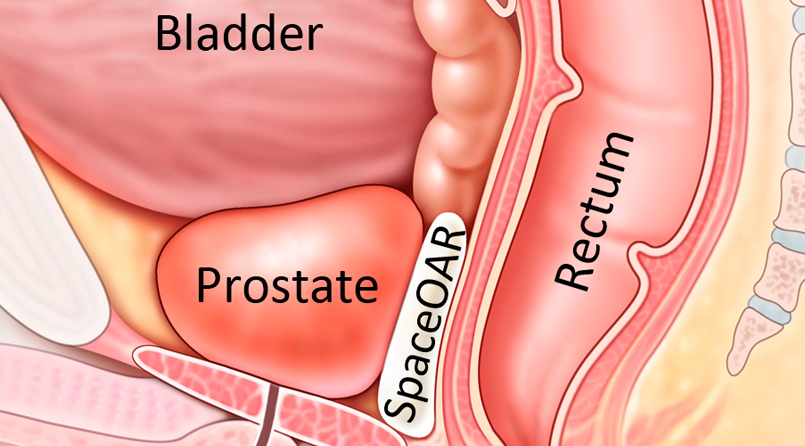Best Prostate Surgeon In Mumbai - Truths
Best Prostate Surgeon In Mumbai - Truths
Blog Article
Prostate Cancer Cells Therapy: Surgical and Non-Surgical Approaches Explained
When encountered with a prostate cancer cells diagnosis, the range of therapy choices can appear frustrating. This thorough overview aims to lose light on the complexities of prostate cancer therapy, providing insights into the intricacies of each approach to equip people in making educated selections concerning their health.
Surgical Therapy Alternatives
When thinking about medical therapy choices for prostate cancer, clients and medical care companies usually consider the advantages and dangers associated with various treatments. This treatment is commonly advised for people with local prostate cancer and offers the possibility for a treatment.
One more surgical alternative is robotic-assisted laparoscopic prostatectomy, a minimally intrusive treatment that utilizes a robotic system to aid the cosmetic surgeon in removing the prostate. This technique can lead to much less blood loss, shorter health center stays, and quicker recuperation times compared to conventional open surgery. It also brings the risk of difficulties such as infection and injury to surrounding body organs.
Inevitably, the selection of medical therapy for prostate cancer cells depends upon numerous variables including the phase of the cancer, the client's overall wellness, and their preferences pertaining to prospective negative effects and recuperation times. Consulting with a multidisciplinary group including urologists, oncologists, and radiation oncologists can assist people make notified choices about one of the most suitable medical approach for their private case.

Non-Surgical Therapy Alternatives
Considering alternatives to surgical treatments, non-surgical therapy options for prostate cancer deal people added opportunities for taking care of the disease while lessening possible medical risks. One non-surgical technique is Active Surveillance, where individuals with low-risk prostate cancer cells are kept track of carefully with normal check-ups, blood tests, and biopsies, without going through immediate therapy. This approach aims to prevent unneeded therapy and its involved negative effects, such as urinary incontinence and erectile dysfunction.
One more non-surgical choice is Radiation Therapy, which utilizes high-energy rays to kill cancer cells (Best prostate cancer hospital in India). This treatment can be delivered on the surface making use of a machine (Outside Beam of light Radiation) or internally via small radioactive pellets positioned near the lump (Brachytherapy) Radiation treatment can be utilized as a main treatment or in combination with other therapies, such as hormone treatment
In Addition, Hormone Therapy is a non-surgical approach that intends to minimize the levels of male hormonal agents (androgens) in the body, as these hormonal agents can sustain the growth of prostate cancer cells. By decreasing or blocking androgen levels, hormonal agent therapy can decrease cancer development and eliminate signs and symptoms in sophisticated situations.
Robotic-Assisted Surgery for Prostate Cancer Cells

One of the essential advantages of robotic-assisted surgical treatment for prostate cancer cells is its capability to lower the danger of issues and negative effects typically connected with open surgery, such as blood loss, discomfort, infection, and expanded recuperation times. Patients undergoing robotic-assisted procedures usually experience shorter medical facility keeps, less postoperative discomfort, and much faster return to typical activities. Additionally, the minimally intrusive nature of robotic surgical treatment commonly leads to smaller sized incisions, resulting in boosted cosmetic outcomes and lowered scarring for clients. Generally, robotic-assisted surgical treatment represents an advanced strategy to prostate cancer cells treatment that combines technical innovations with medical expertise to maximize patient outcomes.
Radiation Treatment for Prostate Cancer Cells
Making use of sophisticated radiation technology, radiation therapy plays a critical role in the thorough treatment of prostate cancer cells. Radiation therapy utilizes high-energy radiation to damage cancer cells and diminish tumors. It is an usual therapy my website option for prostate cancer cells, either as a key therapy or in mix with surgical treatment, hormonal agent therapy, or chemotherapy.
There are 2 primary types of radiation treatment used for prostate cancer: outside light beam radiation therapy (EBRT) and brachytherapy. In EBRT, an equipment delivers radiation from outside the body to the prostate. This treatment is usually offered over a number of weeks, with day-to-day sessions lasting just a couple of minutes (Best prostate cancer hospital in Mumbai). Brachytherapy entails placing radioactive seeds or sources straight right into the prostate near the cancerous cells. These seeds release radiation that eliminates the cancer cells over time.
Radiation treatment for prostate cancer cells is highly effective, with high treatment rates, especially for localized cancer cells. It is additionally a valuable option for clients who might not appropriate prospects for surgical treatment. Like any type of treatment, radiation therapy may have adverse effects, such as urinary system troubles, fatigue, and skin inflammation, however these are typically temporary and manageable.
Hormonal Agent Treatment for Prostate Cancer Cells
Hormone treatment is a commonly used therapy approach for prostate cancer cells monitoring. Prostate cancer cells is typically fueled by the male hormone testosterone. Hormonal agent treatment, additionally recognized as androgen deprivation therapy, intends to minimize testosterone degrees in the body or obstruct the hormone's effects on the prostate click over here cancer cells, hence reducing the condition's development. This treatment is especially effective in innovative stages of prostate cancer, where surgery or radiation treatment may not suffice.
There are various kinds of hormone treatment for prostate cancer cells, consisting of medications that lower testosterone levels (such as luteinizing hormone-releasing hormonal agent agonists and antagonists), or medicines that obstruct testosterone from getting to cancer cells (like anti-androgens) Hormone therapy can be made use of alone or in mix with other therapies like radiation therapy, depending on the phase and aggression of the cancer.
While hormonal agent therapy can efficiently regulate prostate cancer cells growth, it might come with adverse effects such as warm flashes, loss of sex drive, impotence, and osteoporosis - best prostate cancer doctor. Normal tracking and discussions with doctor are crucial to manage these side impacts and make certain the treatment's efficiency
Conclusion
Finally, the treatment options for prostate cancer include non-surgical and surgical strategies such as robotic-assisted surgery, radiation therapy, imp source and hormone treatment. Each method has its very own advantages and risks, and the choice of therapy depends on various aspects such as the phase of cancer cells and overall health and wellness of the client. It is vital for individuals to go over these choices with their doctor to establish the most ideal strategy for their specific scenario.

Making use of innovative radiation modern technology, radiation therapy plays a critical function in the extensive therapy of prostate cancer. It is a common treatment choice for prostate cancer cells, either as a primary treatment or in mix with surgical treatment, hormonal agent therapy, or radiation treatment.
Radiation treatment for prostate cancer cells is very effective, with high treatment prices, specifically for local cancer.Hormonal agent therapy is a typically used therapy method for prostate cancer monitoring.In conclusion, the therapy choices for prostate cancer cells include non-surgical and medical techniques such as robotic-assisted surgical treatment, radiation therapy, and hormonal agent treatment.
Report this page